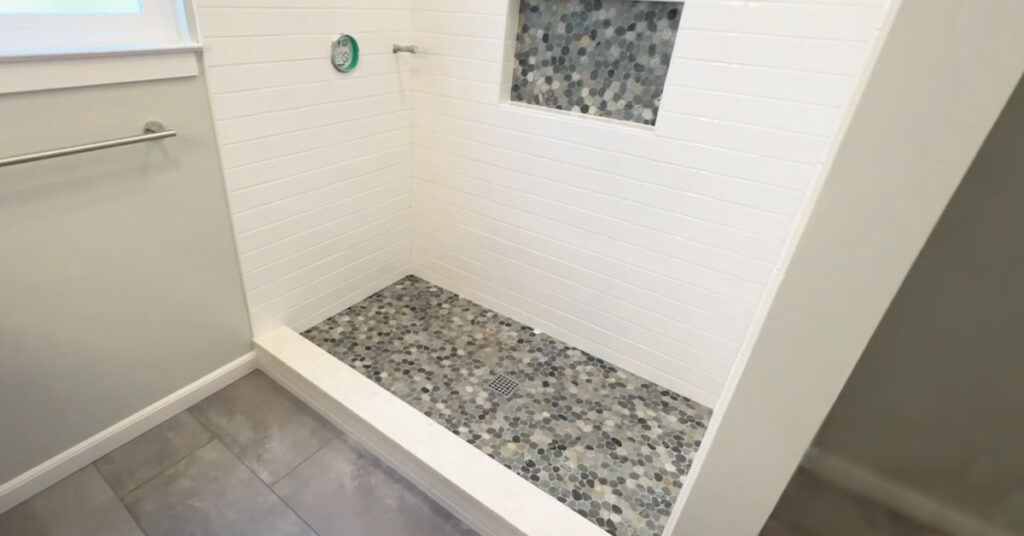
An Honest Look at Shower Inserts and Tile
If you’re in the market for a new shower, one crucial consideration is whether to get a prefabricated shower insert or to have tile installed. Both options have advantages and disadvantages. At Copher Tile & Stone, we are more concerned about making sure you get the best shower for your specific needs than we are about booking our next project. That’s why we are providing an honest look at shower inserts vs tile, even if it means you choose a shower insert.
While shower remodeling decisions may not be permanent, they are certainly long-term choices that homeowners get to (or must) live with for years to come. We want you to be thrilled with your decision. Read on to learn more about what you can expect and discover which material may be best for you.
Logistics
Moving a one-piece shower insert into an existing home can be challenging or even impossible. Check the measurements to be sure the unit will fit through doorways.
Tile showers are heavier than shower inserts. Check if there are any weight limitations because of the substrate in your bathroom.
Installation Time
How much time can you allow for installation? If you need it fast, an insert may be a better choice. It can be installed in as little as one day.
A tile shower will take from a few days to a week or longer, depending on the complexity of the design and whether the shower is part of a whole-bathroom remodel or a standalone project. Discuss installation time with your installer before you purchase materials.
DIY or Hire a Pro?
Are you doing a full bathroom remodel? If so, you should hire a general contractor. You’ll want to make sure all the plumbing and electric get done right. Unfortunately, not all general contractors hire reputable installers. Check reviews and ask about credentials, such as a Certified Tile Installer number.
Shower inserts are generally DIY friendly. Before you attempt to install a shower insert, read the manufacturer’s instructions. Do you have the proper expertise to successfully complete the project? Do you have the right equipment? These are important considerations.
Few people truly understand the complexity of tile shower installation. Apprentices generally do two to four years of rigorous classroom and on-the-job training before they can successfully waterproof and install a tile shower. We highly recommend you leave tile installation to a qualified installer.
Composition
Why does composition matter? Think of the composition of shower materials like the ingredients of a cake. The flavor, texture, and appearance of a cake can be delightful or dull, depending on the ingredients and preparation methods. Similarly, the composition of your shower surface material can impact the way your shower looks and performs.
Prefabricated shower inserts are made of acrylic or fiberglass. They come in either one-piece units or panels. Both types of material are flexible and lightweight. Oddly, they both contain fiberglass and acrylic. The main difference between the two is how they are manufactured. Acrylic shower inserts are formed with a mold using a vacuuming process. Fiberglass shower inserts are formed by layering the materials into a mold coated with gel.
Regarding tile, there are many different types, but the most popular tile choices for showers include porcelain, ceramic, natural stone, and glass.
Ceramic tiles are made of clay and other natural materials. Porcelain tiles are technically also ceramic tiles. They are made of a fine mixture of clays and minerals.
Porcelain tiles are fired at higher temperatures for a longer time in the kiln than ceramic tiles.
Natural stone is quarried from Mother Earth. Each type of stone will perform and react differently, depending on composition and a variety of other factors.
Glass tiles are cast by fusing glass powder, pieces, or sheets together in a kiln.
How It Looks and Feels
Inserts may feel flexible, while tile feels rock solid. In a world of disposable everything, real tile emanates luxury and permanence.
Inserts are mass produced, and this is evident in the quality of appearance. However, modern acrylic shower units have come a long way. Some prefabricated tile-patterned inserts can be an attractive substitute for tile if a homeowner’s budget will not allow for a custom tile installation.
Whether you choose a shower insert or tile, do your homework. Don’t just look at samples. Touch the materials. Feel the difference. Pick up tiles and turn them over in your hands. Check out the back sides of shower panels and inserts. Make sure you understand the pros and cons before purchasing materials and signing a contract.
Durability
How will your shower hold up to normal use and wear?
Fiberglass shower inserts can last from ten to twenty years. Acrylic shower inserts can last 20-30 years. Signs of wear will appear on both materials over time, but fiberglass is more prone to scratches, stains, and other problems than acrylic.
Porcelain tiles are more durable than ceramic and natural stone. Porcelain is also more resistant to stains and scratches. Chips in porcelain or stone will be less obvious because these materials are the same color all the way through.
Regarding glass tiles, Adam Copher, Owner of Copher Tile & Stone says, “It is safer to use glass as an accent where it won’t get banged up, however, we have several clients that are thrilled with their shower walls that are entirely comprised of glass tiles.”
Since waterproofing materials are installed under tile, most properly installed tile showers can last a lifetime, although signs of wear will become evident.
Cleaning & Maintenance
Cleaning and maintenance, although similar, are not the same thing. Cleaning is all about removing dirt, grime, and contaminants, whereas maintenance is about repairing damage and making sure your investment lasts as long as possible.
Cleaning Basics
Whether you’re cleaning a shower insert, tile, or natural stone, the following principles apply:
- Clean often to prevent a buildup of soap scum or mineral deposits.
- Avoid abrasive cleaners and harsh chemicals that can damage the surface of your shower.
- Use manufacturer-recommended cleaning products made specifically for your shower surface material and follow manufacturer-recommended methods to sanitize your shower surfaces and remove stains.
- Use proper ventilation to discourage mold and mildew growth.
Once fiberglass or acrylic shower inserts become worn, they can be very difficult to keep clean and free of stains.
Glazed ceramic and porcelain tiles are non-porous and generally resistant to staining. Grout lines between the tiles can be more susceptible to staining and discoloration over time. Natural stone is porous. Sealing stone can help inhibit staining. A reputable stone and tile restoration contractor can periodically deep clean and seal tile and grout lines to make regular cleaning and care easier and more productive.
Maintenance Matters
To maintain your fiberglass or acrylic shower, replace old caulk seals as needed and tend to any cracks, chips, or holes. DIY kits are available. If your goal is to maintain function and you are not concerned about aesthetics, DIY repair kits can save you hundreds of dollars. Professional repair and refinishing can make a big difference. Replacing a shower insert may be more cost effective, though.
Chips, cracks, and other damage to tile showers can be repaired by a reputable stone and tile restoration contractor. Are your regular cleaning methods proving to be futile against water spots, mineral deposits, and soap scum? A pro can use professional solutions and specialized equipment to remove such buildup. If your tile finish is dull or damaged, your shower can be professionally reglazed (not to be confused with painting) or honed and polished to a like-new appearance.
If you would like to learn more about the specific benefits and drawbacks of shower inserts and tile, please don’t hesitate to reach out. We can provide you with detailed information about tile installation. Go To Plumbing (805) 471-1706 is a trusted prefabricated shower installer who can answer any questions you may have about that option. You can then compare notes and make the best decision for your shower renovation.
Copher Tile & Stone proudly stays up to date on tile shower installations with ongoing education with Mapei Technical Institute, Ardex Academy, the National Tile Contractors Association, Laticrete, and Schluter. Copher is a Certified Tile Installer (#1644).
by Alice Dean
Do you want a quote for a new tile shower? Contact us online or call 805-286-7460. We are San Luis Obispo County’s preferred tile installation company, serving Paso Robles, Templeton, Atascadero, Morro Bay, Cayucos, Cambria, San Simeon, Santa Margarita, San Luis Obispo, Avila Beach, Shell Beach, Pismo Beach, Arroyo Grande, and Grover Beach.

